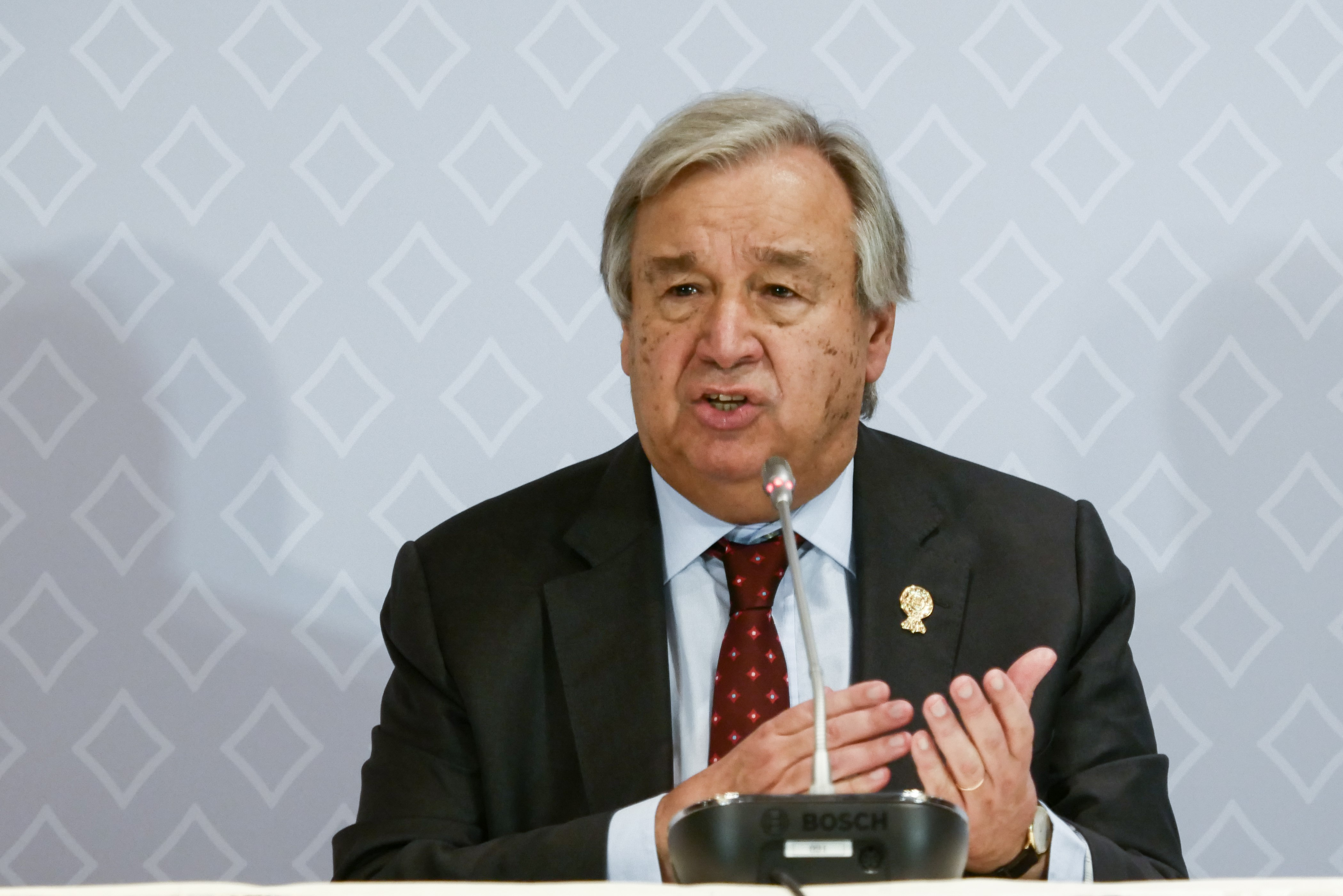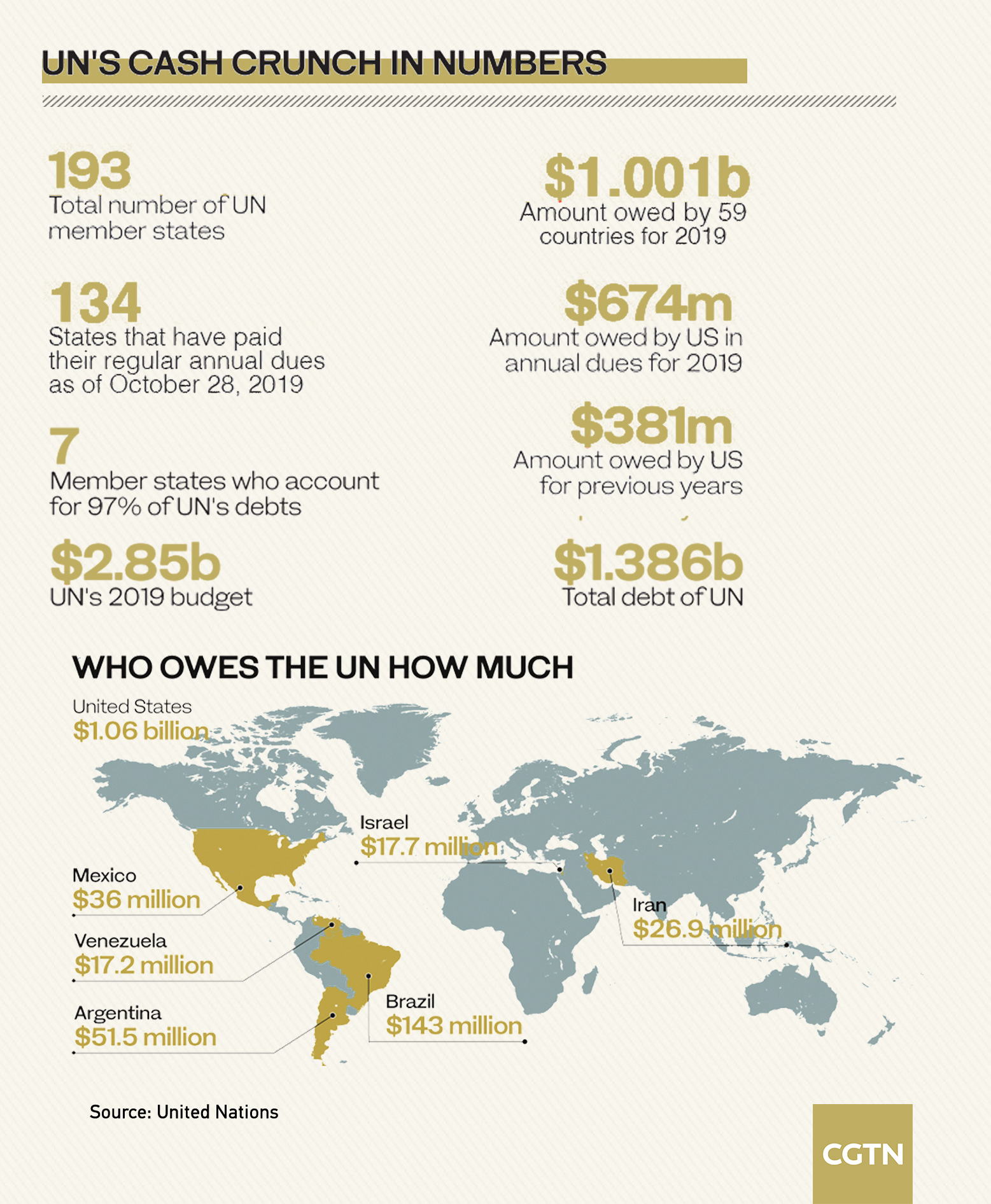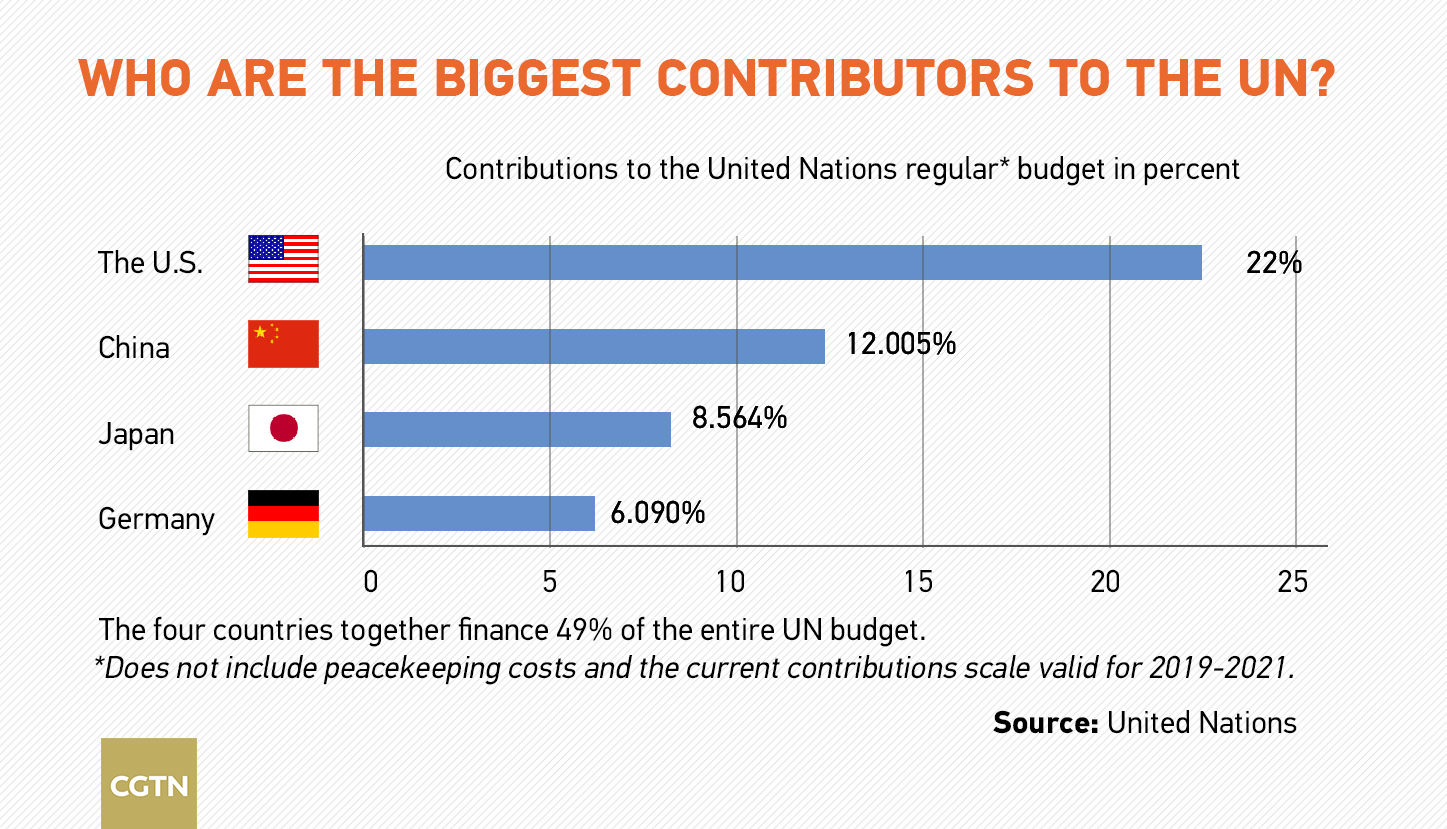The United Nations (UN) may not have enough money for staff salaries in November if member states don't pay what they owe, UN Secretary-General Antonio Guterres said, warning that this situation would put work and reforms "at risk."
In a statement made to the Administrative and Budgetary Committee last month, Guterres told the 193-member UN General Assembly's budget committee that if he had not worked since January to cut spending then "we would not have had the liquidity to support" the annual gathering of world leaders in late September.
"This month (October), we will reach the deepest deficit of the decade. We risk ... entering November without enough cash to cover payrolls," said Guterres. "Our work and our reforms are at risk." The UN is believed to be facing the worst cash crisis in nearly a decade.

UN Secretary-General Antonio Guterres. /VCG Photo
UN Secretary-General Antonio Guterres. /VCG Photo
Despite such a situation, 59 member states out of the total 193, or 30 percent, have defaulted on their payments to the UN, according to latest record, as of October 28. Among the delinquents are Brazil, Iran, Israel, Saudi Arabia, South Korea, Venezuela and the United States.
The payment defaulted by the seven member states account for 97 percent of the UN's total debt, which stands at 1.39 billion U.S. dollars.
The U.S. is the largest contributor to the UN, responsible for 22 percent of 2019's regular budget totaling 2.85 billion U.S. dollars, which pays for work including political, humanitarian, disarmament, economic and social affairs, and communications.
The U.S. owes UN around 381 million U.S. dollars excluding this year's regular budget, and 674 million U.S. dollars for the regular budget of 2019.

The cash crunch is not only jeopardizing payments to vendors and staff salaries, but also undermining the implementation of mandates and reform efforts.
Guterres said he introduced extraordinary measures in September to cope with the shortfall – vacant posts cannot be filled, only essential travel is allowed, and some meetings may have to be canceled or deferred. UN operations in New York, Geneva, Vienna and Nairobi and at regional commissions will be affected.
Whereas the situation is dire, it is far from new. Only a small fraction of member states regularly pay their assessed contributions on time, namely 30 days into the calendar year. At this time last year, 146 countries had paid their dues, in comparison to just 134 this year.

The U.S., China, Japan and Germany are the four largest contributors to the UN, together financing 49 percent of the entire UN regular budget.
China surpassed Japan to become the second largest contributor to the UN. Its contribution raised to 12.01 percent in the 2019-2021 period from 7.92 percent for the 2016-2018 period, while Japan's contribution fell to 8.56 percent from 9.68 percent.
Assessments for member countries' contributions are made based on several elements and criteria, including estimates of gross national income.
(Infographics by Sa Ren)